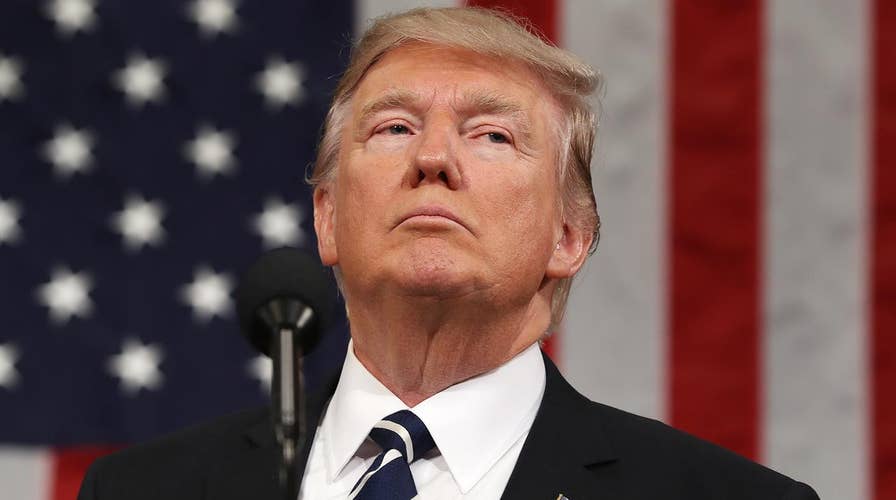Trump takes hard stance against 'radical Islamic terrorism'
Pete Hegseth weighs in on president's speech
The growth of Islamic extremist activity in Latin America is a major security threat to our country. And Iran’s influence in Latin America demands a new national security strategy in the region.
That is all according to a new report released by the National Center for Policy Analysis, a nonpartisan public policy research organization.
The report, authored by David Grantham, senior fellow on national security at the center, looked into the growing influence of countries like Saudi Arabia and Iran in Latin America.
IRANIAN MINISTER'S TRIP TO CUBA, LATIN AMERICA RAISES CONCERN ABOUT ITS INFLUENCE IN REGION
In regards to Iran, the report warns of the prospect of a retaliatory attack on the U.S., saying, “The Islamic Republic has the capability and infrastructure to strike the United States from Latin America, but experts disagree over whether it would take that risk.”
As Islam grows in Latin America and the Caribbean, particularly in places like Brazil, Venezuela and Trinidad and Tobago, experts say Islamic radicalization in parts of these regions is growing as well – which is particularly disconcerting because of their proximity to the United States.
Of particular concern is the tri-border region of Argentina, Brazil and Paraguay, 800 miles north of Buenos Aires, where the Islamic militant group Hezbollah has set up its most important base outside of Lebanon.
But other threats include Trinidad and Tobago, a small island nation off the coast of Venezuela that has become a breeding ground for ISIS. About 70 of the 100 Latin Americans who have joined ISIS originated from the island nation, which is about 1,600 miles southeast of Florida.
A major concern is Iran’s growing influence in Latin America, where some leaders have shown a willingness to work with a country that has a long history of hostile relations with the U.S.
In March of 2015, Homeland Security Director Gen. John Kelly, who was then commander of the U.S. Southern Command, addressed the Senate Committee on Armed Services and said Iran has opened a number of embassies and “cultural centers” in the region to gain a foothold in Latin America.
SYRIAN MIGRANTS SHOW THAT LATIN AMERICAN HUMAN SMUGGLING PIPELINE HAS GONE GLOBAL
“I'm a little bit suspicious of these – of this activity, just because there is such a vast difference between the two countries – or the two regions, two cultures,” Kelly said. “So, we keep an – we keep a watchful eye on them.”
Kelly, however, did say the threat was not imminent.
The report argues the Trump administration should shift priorities in the regions toward disrupting financial networks of Islamists because it claims “the threat is worsening – not “waning” as the Obama administration claimed about Iran in 2013.”
Grantham told Fox News the report proves the threat from terrorism in the western hemisphere is not just from "lone wolf" radicalization or loosely affiliated jihadists tinkering on social media.
“Islamists are organized, well-funded and operating sophisticated operations against the United States only a few hundred miles south of our border,” he said.
The U.S. Southern Command, which is responsible for U.S. military activities in Central and South America and parts of the Caribbean, did not comment on the report but pointed to comments Navy Admiral Kurt Walter Tidd made at the University of Texas last week. Tidd said the country has to do more than stopping terrorists from heading to Latin America or preventing homegrown attacks in the hemisphere.
“We also have to do a better job addressing the conditions that allow those pathways to exist,” he said, “and those extremist messages to resonate in the first place.”


